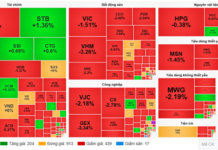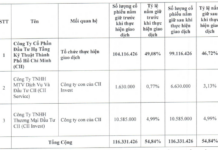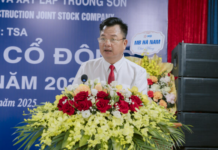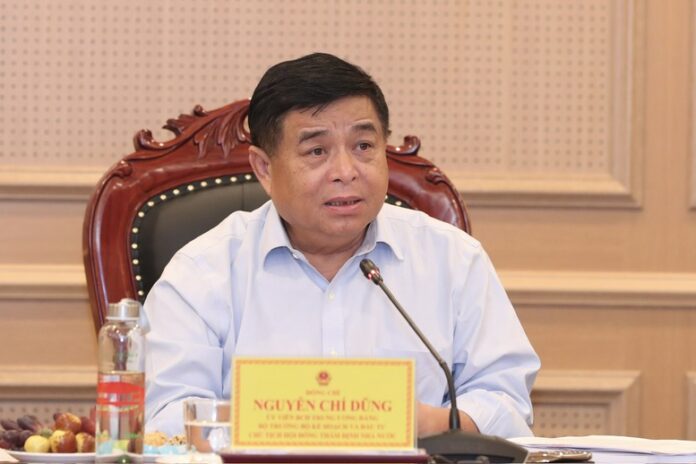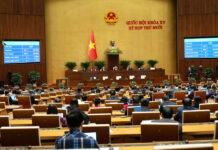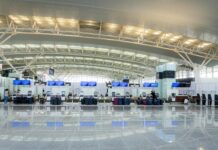
Minister of Planning and Investment Nguyen Chi Dung, Chairman of the State Appraisal Council for the pre-feasibility study report of the high-speed rail project on the North-South axis, speaks at the meeting.
The meeting was also attended by Deputy Minister of Transport Nguyen Danh Huy and representatives of ministries, sectors, and localities who are members of the Council.
According to Minister Nguyen Chi Dung, the project to invest in the construction of a high-speed rail line on the North-South axis has been approved by the Politburo and the Central Committee of the Party with a unified investment policy for the entire line with a design speed of 350 km/h, transporting passengers, and meeting the requirements of dual-use for national defense and security, and cargo transportation if necessary.
This is an extremely important project for the development of the country, contributing to enhancing the stature and prestige of the nation in the new era. Therefore, ministries and sectors need high determination, great efforts, and decisive actions to implement it.
At the meeting, the Council members focused on discussing and providing opinions on the contents of the pre-feasibility study report of the project; the appraisal results of the appraisal consultant; and the draft appraisal report on the pre-feasibility study report of the project.
Concluding the meeting, Minister Nguyen Chi Dung, Chairman of the Council, requested the Ministry of Transport to carefully study the appraisal report of the inter-sectoral appraisal team, the appraisal report of the Appraisal Consultant, the opinions of the Council members, and the appraisal opinions of the relevant ministries and sectors to maximize the reception and urgently complete the pre-feasibility study report of the project.
Regarding the project dossier, based on the Conclusions of the Politburo, the Central Committee, and the Government’s Standing Committee, the Ministry of Transport was requested to review, scrutinize, and supplement the project dossier comprehensively to ensure quality and efficiency.
Regarding transport demand forecasting, the Chairman of the Council requested a thorough review of the transport demand forecast data (passengers and cargo) on the North-South corridor to ensure reliability and compatibility with similar projects worldwide.

Overview of the meeting
Regarding the alignment and station locations, the Council requested strict adherence to the directions of the Government’s Standing Committee, especially the technical factors that the alignment must be as straight as possible to reduce costs, especially the section passing through Nam Dinh province, ensuring the operating speed for the trains, creating a new development space, avoiding residential and urban areas, but providing convenient connection options to ensure the shortest access to major airports and seaports, facilitating the linkage with the East-West corridor, and connecting with the railway lines of China, Laos, and Cambodia.
At the same time, continue to coordinate with the localities where the high-speed railway passes through to review and adjust the alignment and station locations of the project, especially those with advantages in connecting to major transport hubs and economic zones.
Regarding the preliminary total investment, the Chairman of the Council requested a review based on the principle of accurate and sufficient calculation and in accordance with the law at the stage of preparing the pre-feasibility study report of the project.
According to the pre-feasibility study report presented at the meeting, the North-South high-speed rail project aims to realize the policies and orientations of the Party, the Resolutions and Conclusions of the Politburo, and the implementation of the master plans; enhance regional connectivity, growth poles, create a spillover effect, open up new economic development space, restructure urban areas, redistribute the population, and transform the economic structure; increase the competitiveness of the economy; meet transport demands, contribute to the optimal and sustainable restructuring of the market share of transport on the North-South corridor, create a premise and driving force for socio-economic development, and ensure national defense and security.
The project is expected to pass through 20 provinces and cities, including Hanoi, Ha Nam, Nam Dinh, Ninh Binh, Thanh Hoa, Nghe An, Ha Tinh, Quang Binh, Quang Tri, Thua Thien Hue, Da Nang, Quang Nam, Quang Ngai, Binh Dinh, Phu Yen, Khanh Hoa, Ninh Thuan, Binh Thuan, Dong Nai, and Ho Chi Minh City.
In terms of investment scale, the project involves the construction of a new double-track railway with a standard gauge of 1,435 mm, electrification, a design speed of 350 km/h, and an axle load of 22.5 tons; a length of about 1,541 km with 23 passenger stations (one station in each province, except for Ha Tinh, Binh Dinh, and Binh Thuan, which will have two stations each). To ensure the dual-use for national defense and security and cargo transportation when needed, five cargo stations will be arranged along the line at major cargo hubs, facilitating logistics for national defense and security and international transport.


